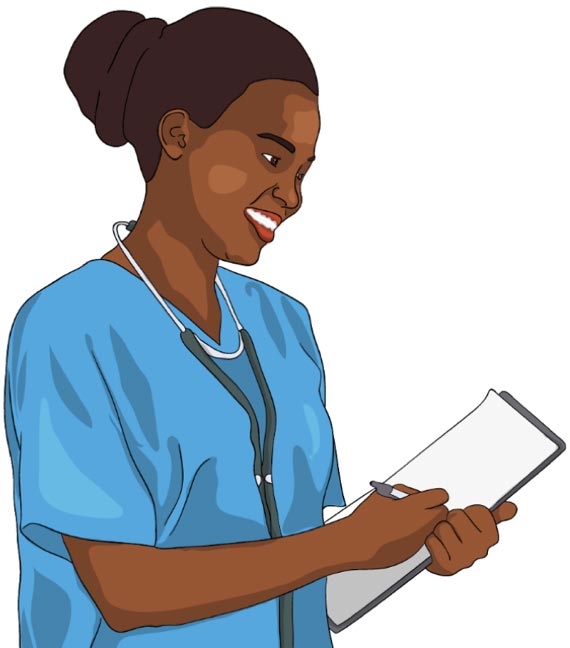- Home
- Treating cancer in our mob
- Research and clinical trials
- Research and clinical trials for our mob

Treating cancer in our mob


Research and clinical trials for our mob
You might be asked if you want to take part in research, or in a clinical trial. It’s your decision, and you can take all the time you want to think about it. And you can yarn with other mob who have participated in clinical trials or your Aboriginal and/or Torres Strait Islander health worker about it to see what they think before you make your decision.
Here’s some information to get you started on thinking about it.
What is a clinical trial?
A clinical trial is research that is run by doctors or nurses (usually). It aims to work out what treatments work best for people with conditions like cancer.
Do they need my permission to put me in a clinical trial?
Yes, you need to say ”yes” to be put you in a clinical trial. You can’t be put in one without your permission. That might have happened in the past, but there are ethics rules that apply now. You have the right to ask questions about exactly what involvement in the trial would mean for you and for how long. You have the right to all the information you need for you to decide.
Would a clinical trial help me?
People might or might not be helped by a clinical trialBut if you’re in a clinical trial, you will get full information, and you may have the chance to either receive the latest treatment, or one that the doctors and nurses think might be better than the ones available through current, standard treatment.
Would a clinical trial help mob?
There may be some benefits for mob, because if more Aboriginal and/or Torres Strait Islander people join in with research, more information might become available about how research should happen and what works. If we take part, it might help doctors and nurses know what the best treatments are for our mob.
Would a clinical trial be bad for me?
All research teams must do their very best to reduce any risks with research. But no-one can ever say for sure what might happen. You might get the new treatment being tested, and it might not be as good as the doctors thought. Or, you might get sick of having to read all the paperwork, or do the extra testing or answer the extra questions you get asked.
But there are many, many ways that people in clinical trials are protected.
Researchers have to follow rules designed by governments, doctors and Aboriginal and/or Torres Strait Islander research organisations to make sure the research is fair and ethical.
The research has to be approved by committees whose job is to protect the health and wellbeing of people in clinical trials. In some cases, these committees are led by Aboriginal and/or Torres Strait Islander people.
The research should have a group of experienced Aboriginal and/or Torres Strait Islander people who are watching over it, to make sure things are culturally respectful for mob. You can ask if this happens in the research you’re thinking about.
Will it cost anything?
It usually doesn't cost any money to be in a clinical trial, but it will take some time. You’ll have to yarn with doctors and nurses more, and probably see them more. You might have to have more tests. But they’ll pay for you to get to the hospital for the tests and appointments.
If I say yes, what do I have to do?
What’s needed from you depends on what the trial is, so you’ll have to ask the doctor or nurse who is asking you about it. They have to tell you everything they know about it, and everything you want to know about it. You can ask as many questions as you want. And you can take someone with you too, to listen and ask questions. It’s okay to take as much time as you need to decide what’s best for you.
If I say no, what happens?
Nothing will happen if you say no, and there are rules to say that researchers must not make anything happen that affects relationships, health care or anything else. You get the same treatment as you were going to get, and the doctors and nurses just ask someone else.
What happens if I change my mind?
You can change your mind about being in a research project or clinical trial at any time, and you just tell the doctors and nurses involved. They’ll have given you a phone number and email address to contact them, and you just get in touch and tell them you’ve changed your mind. You don’t need to give a reason that you have changed your mind. That’s okay, lots of people do, and researchers are used to it.
Is there more?
Life with and after cancer
FIND OUT MORE
Where can I get help or support?
FIND OUT MORE

